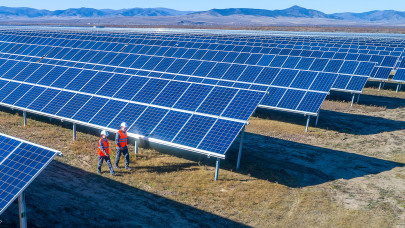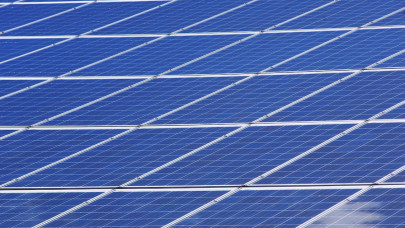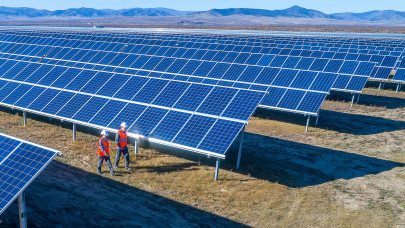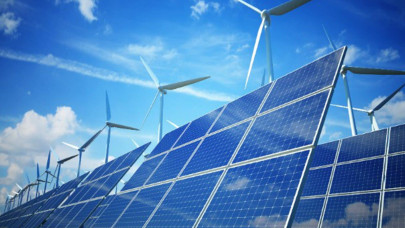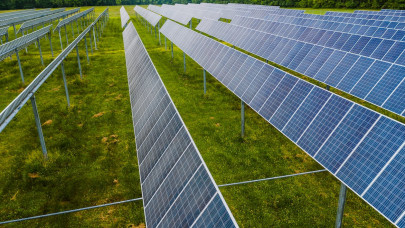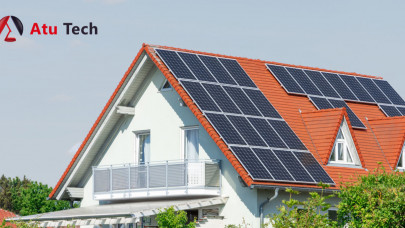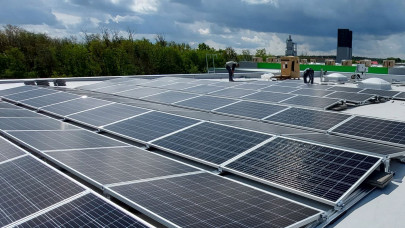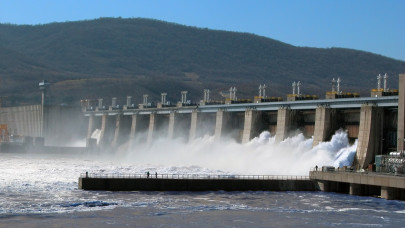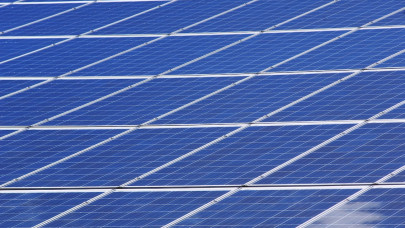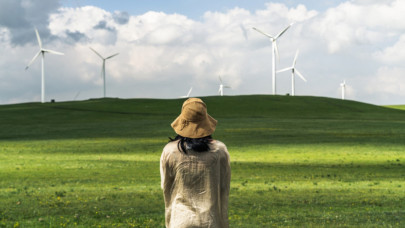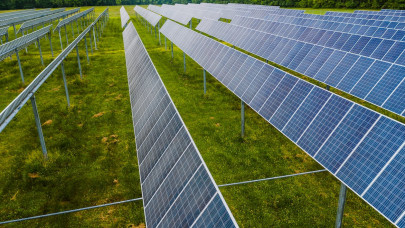Alina Oprea
| 23 May, 2023 at 3:25 PM
OMV Petrom, the largest integrated energy company in Southeast Europe, announces the signing of a financing contract through the National Plan for Recovery and Resilience for the construction of a hydrogen production capacity by water electrolysis at the Petrobrazi refinery. The contract was signed with the Ministry of Energy, for a maximum value of about €39 million, the total investment being estimated at about €74 million.
Alina Oprea
| 22 May, 2023 at 9:22 AM
Romania requests, through the RePowerEU mechanism, substantial European funds for subsidizing the installation of photovoltaic panels for natural persons. It is about €400 million, the amount that could be included in some kind of complementary program to the program of the Environmental Fund Administration for the installation of photovoltaic panels on residential homes.
Alina Oprea
| 19 May, 2023 at 8:30 AM
A photovoltaic park with an installed power greater than that of a Cernavodă nuclear reactor will be built in Romania, which reflects the appetite of investors to become players in this market again. George-Sergiu Niculescu, president of the National Energy Regulatory Authority (ANRE), says that when he arrived at ANRE's management, he saw a request for authorization to establish a photovoltaic park of approximately 1,050 MW.
Alina Oprea
| 18 May, 2023 at 9:30 AM
7 out of 10 Romanians who install photovoltaic systems are from urban areas. Also, RON35,000 (€7,000) is the average value of the projects implemented and in the process of implementation, shows a study by the company Ensys, a supplier of turnkey photovoltaic systems in Romania. It shows that the amortization period of a photovoltaic system is 2-7 years. The study shows that 7 out of 10 Romanians who install photovoltaic systems are from the urban environment, and 8 out of 10 customers who install photovoltaic systems are men.
Alina Oprea
| 17 May, 2023 at 2:30 PM
The potential of the green energy market (solar panels, heat pumps, insulation) is estimated at over €30 billion by the year 2040. The consulting company McKinsey & Company Romania shows that Romania's transition to green energy represents a financing opportunity for banks of €20 billion.
Alina Oprea
| 15 May, 2023 at 10:10 AM
Greece and Egypt are discussing a partnership through which the import of electricity obtained from renewable sources in Europe will be carried out through the GREGY project. GREGY will enable the supply of 3,000 MW of green energy from Egypt to Greece. The project received a vote of confidence from the governments of the countries involved.
Alina Oprea
| 9 May, 2023 at 12:33 PM
Poland-based Keno enters the Romanian market with solar systems, installation, and heat pumps. The company is already present in Germany, Great Britain, Norway, Poland, Hungary, and the Czech Republic, specializing in the production of solar panels, heat pumps, switchboards, and mounting systems.
Alina Oprea
| 5 May, 2023 at 9:52 AM
The online store of security products Atu Tech triples its investments in photovoltaic systems, to over €1 million, and estimates that sales of such products will generate 15% of the total turnover. The company lists more than 600 products in the photovoltaic systems category, which covers a broad spectrum of demand, and shows that it decided to make such an investment due to the high demand for photovoltaic systems.
Alina Oprea
| 28 April, 2023 at 2:07 PM
Photon Energy Group put into operation three photovoltaic power plants near Calafat, in Dolj County. The solar parks cover 10.2 hectares of land and are equipped with approximately 10,800 solar panels.
Alina Oprea
| 28 April, 2023 at 8:42 AM
OMV Petrom has reduced carbon intensity by 11% compared to 2019 and its overarching ambition is to achieve a 30% reduction by 2030 compared to 2019. OMV Petrom is planning to have photovoltaic panels installed in 50% of the group filling station network by 2025.
Alina Oprea
| 26 April, 2023 at 5:34 PM
Wetterbest is expanding its product portfolio with photovoltaic plants for the residential segment, autonomy in electricity consumption, and even energy independence. The company has three types of photovoltaic systems: on-grid, hybrid, and off-grid.
Alina Oprea
| 26 April, 2023 at 3:15 PM
Sunflower Hundred invests over €100 million in a solar panel factory in Dâmbovița. The factory will be partially built with European funds, and production could start by the end of 2025. The solar panels will have a maximum power of 600 and 410 W, respectively.
Alina Oprea
| 25 April, 2023 at 3:22 PM
The Arabs from Masdar want to do 2,000 MW green projects with the state company Hidroelectrica. The investments would exceed €2 billion and include offshore wind and floating solar.
Alina Oprea
| 25 April, 2023 at 12:30 PM
Schools, hospitals, public lighting, and local administration could be supplied with green energy from a photovoltaic park. The proposal belongs to the president of the Prahova County Council, Iulian Dumitrescu, who asked the Minister of Investments and European Projects, Marcel Boloș, to allocate European funds for the construction of a photovoltaic park.
Alina Oprea
| 24 April, 2023 at 5:35 PM
Restart Energy installed an 800 kW photovoltaic system for Rekord, a shoe manufacturer from Alba. The company will install another 300 kW for the same company. The company will eventually cover 80% of its own energy consumption.
Alina Oprea
| 24 April, 2023 at 3:28 PM
Delgaz Grid begins, in the Mediaș training ground, the tests within the 20HyGrid project, through which it aims to validate the use of the technological solution based on the mixture of 23% hydrogen with natural gas. The company shows that Romania has the remarkable potential both in terms of the production of green hydrogen, but also in terms of the production of renewable energy from which green hydrogen is produced.
Alina Oprea
| 19 April, 2023 at 3:00 PM
At least 10,000 photovoltaic systems could be installed every month in Romania, says the Minister of Environment, Water and Forests, Tanczos Barna. In Romania, 3 million houses are registered. According to the minister, the issue of smart meters is a challenge, because it happened that inappropriate meters were ordered.
Alina Oprea
| 19 April, 2023 at 11:19 AM
Complexul Energetic Oltenia announces that it has complied with its compliance obligations and purchased all CO2 certificates for last year's electricity production. The deadline for compliance was April 30.
Alina Oprea
| 18 April, 2023 at 5:48 PM
In 2021, the source that contributed the most to the EU's primary energy production was renewable energy, respectively 41% of the total energy production in the European Union. In the case of Romania, the main sources of energy in 2021 were natural gas (32.3%), renewable energy (26.7%), solid fuels (14.5%), crude oil (14.1%), and nuclear energy (12.5%).
Alina Oprea
| 13 April, 2023 at 1:11 PM
Simtel Team wants to access credits of €100 million for photovoltaic plants with a total capacity of over 100 MWp. The decision will be approved in the General Meeting of Shareholders on April 26.
Alina Oprea
| 13 April, 2023 at 9:39 AM
Wind and solar energy reached a record high of 12% of global electricity generation in 2022. All renewable energy sources, including nuclear power, comprised 39% of global electricity last year. Meanwhile, EU countries are lagging behind with wind power expansion.
Alina Oprea
| 10 April, 2023 at 3:05 PM
The company Eco Partnersheep Insulation SRL, belonging to investors from Olt county, will invest over RON182 million (€36.4 million) in the largest wool processing factory in Europe. This will produce sound- and thermal-insulating wool products and will contribute to reducing the negative effects of climate change.
Alina Oprea
| 6 April, 2023 at 12:01 PM
The Romanian Football Federation (FRF) is installing €400,000 in solar panels. This investment will contribute to increasing energy efficiency. FRF wants to contribute to the reduction of direct and indirect carbon emissions at the events we organize by up to 50% by 2030.
Alina Oprea
| 6 April, 2023 at 9:14 AM
Several Romanian companies receive money from the state through PNRR for green hydrogen production. The Ministry of Energy signed financing contracts for 7 projects to build green hydrogen production capacities.


